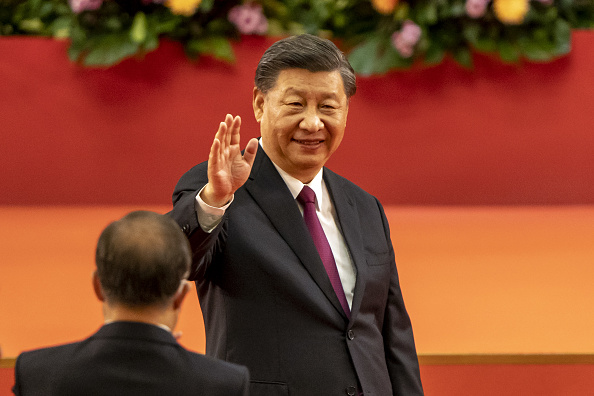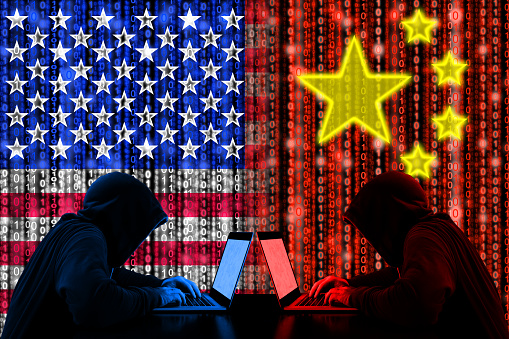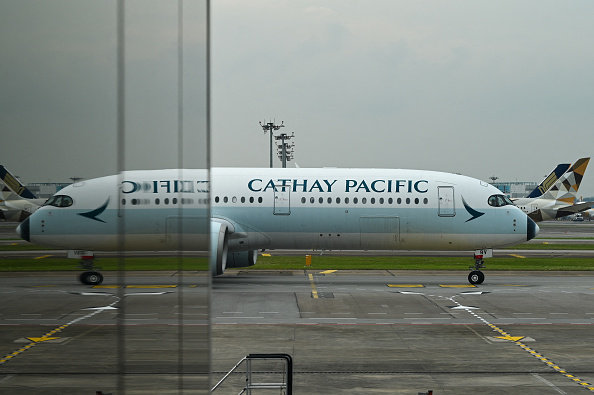
 Hot Intrigue
Hot IntrigueThe Chinese Communist Party's most important political meeting of the year is swiftly approaching, and the level of intrigue is rising. At the 20th National Congress of the Chinese Communist Party, President Xi Jinping is expected to be reappointed as leader of the party and military commission for an unprecedented third term that will cement his power in the country. State media has announced the final list of 2,300 CCP central committee delegates, shooting down a flurry of unfounded rumors of political instability.
Following Xi's recent trip to Central Asia, his first outside of China since the start of the COVID-19 pandemic, he followed China's strict quarantine measures that China imposes on people returning from overseas travel. His disappearance from the public eye sparked an online frenzy of rumors, which claimed – without evidence – that he had been overthrown in a military coup and placed under house arrest.
Reappearing in public a few days after the rumors began to circulate, Xi was seen touring a Beijing exhibition showcasing China's achievements under his leadership since late 2012, including efforts to revitalize the economy, modernize the military and combat the Covid-19 pandemic.
The rumors also came amidst other high-profile political moves, including the arrest and jailing of the former vice-minister of public security Sun Lijun, the former justice minister Fu Zhenghua, and former police chiefs of Shanghai, Chongqing and Shanxi on corruption charges. Fu and the police chiefs had been accused of being part of a political clique surrounding Sun, and being disloyal to Xi.
Rumors of political infighting and power struggles have often emerged in the lead-up to important events such as the five-yearly leadership reshuffle.
Read more in our CPC 20th National Party Congress series by Cheng Li, Director of the John L. Thornton China Center at The Brookings Institution.
 Data Breach
Data BreachChinese state media has reported that a U.S. intelligence agency gained access to China's telecommunications network after hacking a university. According to the investigative report, first published by China Daily, the U.S. National Security Agency carried out an attack on the Northwestern Polytechnical University and then stole "core technology data including key network equipment configuration, network management data, and core operational data," among other files.
The researchers behind the report are alleging that the NSA gained access to the data of "sensitive identities" and sent that back to its headquarters, and then infiltrated Chinese telecommunications operators so that the U.S. could "control the country's infrastructure."
The report adds further flame to the ongoing tensions between the U.S. and China in the cyber domain. For several years, China has made multiple accusations against the U.S. of cyberattacks but has not been specific. However, in the last few weeks, Beijing has been more vocal in attributing attacks to the U.S.
In the meantime, Meta has said that it had taken down what it alleges was the first targeted campaign originating in China to interfere in U.S. politics ahead of the midterm elections in November. The parent company of Facebook and Instagram called it "a new direction for Chinese influence operations," and cited that it involved 81 Facebook accounts, eight Facebook pages and one group.
 A Slow Return
A Slow ReturnPandemic travel barriers across the globe came down this week, including Canada in the west, and Hong Kong, Taiwan, and Japan in Asia. Hong Kong scrapped its hotel quarantine policy and Japan said it's ending its 50,000-daily-visitor cap and its ban on individual travelers starting October 11. Taiwan will also end its mandatory covid-19 quarantine for arrivals and welcome tourists back starting mid-October.
But while many closed-off areas are opening back up to international travelers, tourism is not expected to snap back immediately, as travel costs remain much more expensive than pre-pandemic levels. International airlines are scrambling to add more flights with a surge in demand for travel, but some flights, like from Hong Kong-based Cathay Pacific, are still sky high. For example, a business class ticket between Hong Kong and Los Angeles leaving Friday and returning on Oct. 7 cost HK$102,270 (USD$13,029). But even with the price, Cathay had to set up a virtual "waiting room" to get onto its website due to an escalation in visitors. Customers are told they can "queue" to be put through to Cathay's booking platform, after which they will have 30 minutes to buy tickets.
Despite much of Asia reopening, China remains the holdout and is continuing to move forward with its zero-covid policy. It's anticipated that the next stage of China's covid-19 strategy will be announced at the upcoming CPC 20th Party Congress, but some analysts are already speculating that Beijing may not begin slowly reopening until 2023. Goldman Sachs Group Inc. said last week China likely won't begin reopening before the second quarter of next year, while Nomura Holdings Inc. sees possible easing after March, once a reshuffle of China's top leadership is completed.
The CPC is also coming under more pressure to begin reopening the country as it has taken an economic hit due to restrictions, including weaker income growth and a sharp rise in youth unemployment. "Reopening appears to be the remaining meaningful tool to manage the economy," analysts led by chief Asia economist Chetan Ahya wrote in the note Monday.
Read more in "China's Economic Downturn: A Use Case for the e-CNY," by Chris McNally, Professor of Political Economy at Chaminade University.
Prepared by China-US Focus editorial teams in Hong Kong and New York, this weekly newsletter offers you snap shots of latest trends and developments emerging from China every week, while adding a dose of historical perspective.
- 2022-09-23 Global Gridlock
- 2022-09-16 Injecting Stability
- 2022-09-09 Cutting Edges
- 2022-09-01 A Win for Global Business
- 2022-08-26 A Heavy Price
- 2022-08-19 Risky Business
- 2022-08-12 Backtracking
- 2022-08-05 Cross-Strait Outrage
- 2022-07-29 Playing with Fire
- 2022-07-22 Nixonian Flexibility
- 2022-07-15 List Diplomacy
- 2022-07-08 Easing Tariffs, Not Tensions
- 2022-07-01 Getting Tough
- 2022-06-24 Tools in the Box
- 2022-06-17 Unprecedented Oversight
- 2022-06-10 Squaring Off
- 2022-06-03 Diplomatic Chills
- 2022-05-27 Competing Visions
- 2022-05-20 Common Ground
- 2022-05-13 Bilateral Interests